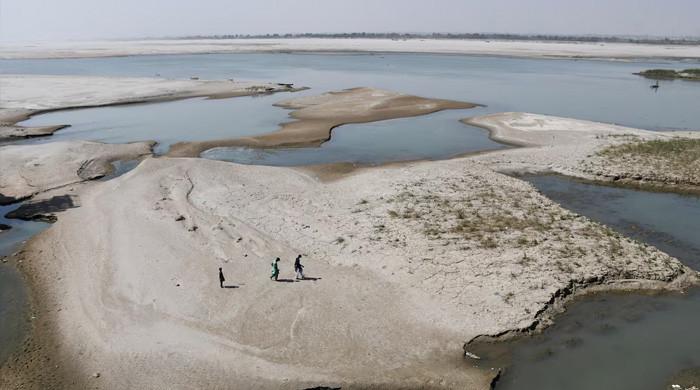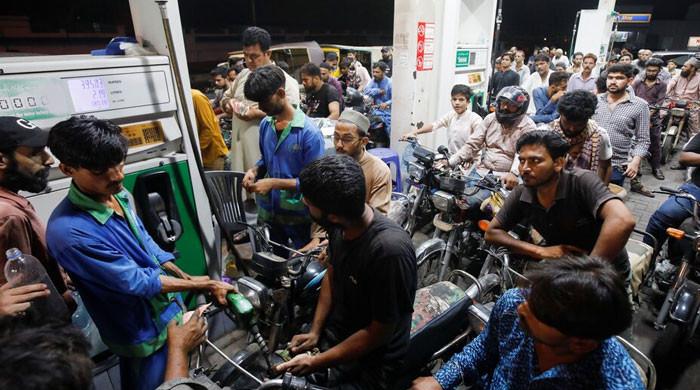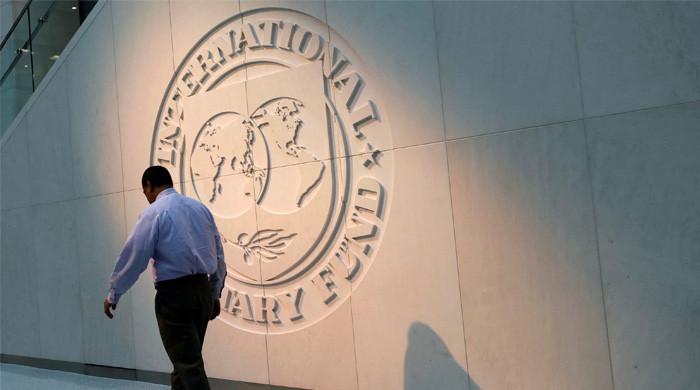The hunger wars
International Food Policy Research Institute ranks Pakistan 106 out of 119 on the hunger index
October 17, 2019
It is obviously a tragedy that hunger, and in many cases acute hunger, still exists in our world. This is mainly due to the uneven distribution of food and global policies that prevent surplus from reaching those in need.
Pakistan’s own issues with hunger are very grave. According to the International Food Policy Research Institute based in Washington, the country ranks 106 out of 119 countries. The rating is based on several factors, including the proportion of people suffering hunger, wasting and stunting among children and under five mortality.
Below Pakistan stand countries including Haiti, North Korea, Timor Leste, war-torn Yemen and Sudan. Above it is every other country in South Asia. India is only a few places above Pakistan at 103rd place, but given its massive population and the small successes it is having in reducing hunger, notably between 2006 and 2016, there’s cause for hope. We look around in vain for the light.
According to studies conducted in various countries and by various institutions, soup kitchens or ‘langars’ are unlikely to eliminate hunger in a country. Surely this should be our long-term goal. In short-term crisis situations, they can be effective, as FDR demonstrated under his New Deal as the Great Depression descended upon the world or after a natural disaster.
Arguably, they can also offer some short-term benefits in other situations, but we should remember that Pakistan is one of the most charitable nations in the world, and ahead of most others in terms of food charity. Langars exist in many places; at darbars and shrines, at major sites for construction and in other areas across the country.
Read also: Indians are hungrier than Pakistanis on Global Hunger Index
The Ehsaas-Saylani Langar Scheme set up by the PTI government may be well-intentioned, but we should remember that the giant Saylani trust, one of Pakistan’s largest charities, has been feeding people since 1999 and the 112 langars that the government tells us will be added to the one opened in Islamabad with Imran Khan joining in to eat and naturally attract the cameras already exist and are feeding people. It does not seem anything new is to be achieved.
The photographs of Imran Khan eating food with the people, most of them labourers, collected at the langar may in his eyes show his well-established interest in charity. But whether they achieve much beyond this is questionable.
The problem with soup kitchens is that only the poorest of the poor visit them. Many white-collar workers, or ‘safaid posh’, would never eat at a langar due to the need to protect dignity and status. In many of these households, belonging to clerks, low-level office workers and others, hunger exists but is hidden behind a veil deliberately by the family so they are not seen as dependent on charity or unable to serve meals to their own household members. As prices rise, the number of such houses across the country is rising sharply. We need a full-fledged hunger mapping study to establish just where hunger exists and how it can be tackled. Soup kitchens do not solve the problem, except for a relatively limited group.
It is always important to look around the world. Other nations have looked into the distance and set up programmes to ease hunger over years and decades and make these programmes sustainable.
Read also: Poor countries will need to increase carbon footprint to address hunger
Brazil, which began its drive against hunger under former union leader President Lula da Silva in 2003 is an example. By 2009, it had lifted some 20 million people out of poverty, also enabling them to improve diets and by delivering aid in the form of direct cash transfers to the lowest income groups, ensuring 82 per cent of the 50 million people were eating better than before. This was combined with a school meals programme and, importantly, support for small farmers so they could grow produce for their own households and also enough so they could sell to others in the community.
Such schemes are important to understand and, where possible, adapt to our own needs. After all, a food programme must be sustainable if it is to reduce stunting and wasting among children, with India achieving this to a degree, and reaching groups that are most in need of food including girls and women.
There are also other schemes that already exist and can be developed, allowing people to retain both their dignity and receive a decent meal. A couple in Karachi serves meals to anyone who comes to their door or allows them to take as much as they need home for a payment of only Rs3. Handing over this token amount takes away the idea that they are receiving charity or are begging for food.
In India, an ambitious programme which began with one restaurant in the south of the country to tastefully pack leftover food in boxes and leave them in a refrigerator outside the eatery, to be picked up by anyone passing by discreetly and without attracting too much attention if they so chose, has caught on and been picked up by others.
The Robin Hood Armies which operate in Pakistan and in other nations essentially follow the same idea, by collecting the huge amount of food left over from restaurants and homes – especially after wedding functions or other occasions – and delivering it to impoverished communities or groups. All of these programmes can be improved upon. But most important of all is the need to ensure people have jobs and an income that allows them to buy at least the basic needs of life.
Philanthropy, which in Pakistan makes up over one percent of the GDP, shows generosity and comes even from those who can afford little themselves. However, it is not an answer to poverty or to the provision of basic needs to people. Some countries have passed laws making food security a basic legal right of every citizen. We need to look into such legislature.
Read also: Logic behind the langar
Even in Britain, where cuts and benefits have suddenly thrown people into poverty, ‘supermarkets’ and ‘food banks’ which give away food for free have been opened. These are supported by churches or communities but also backed by funding from the local council. More and more have been visiting these as costs rise and jobs vanish.
We need then to re-examine precisely what we are doing and first of all ask why a country with the second-largest reserve of resources in South Asia, plenty of fertile land and a strong tradition of agriculture cannot provide food its people can afford to buy.
Policies need to be re-examined and we need to understand that it will not be possible to simply offer the growing number of food insecure people in the country free meals day after day for eternity. Instead, schemes to feed children in schools, ensure pregnant and lactating mothers are offered supplementary nutrition, promote breastfeeding and consider setting up schemes for communities to run their own kitchen gardens need to be looked into by experts and developed till no citizen in the country goes hungry.
The writer is a freelance columnist and former newspaper editor.
Email: [email protected]











